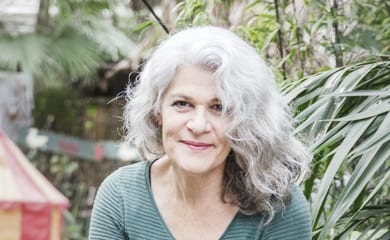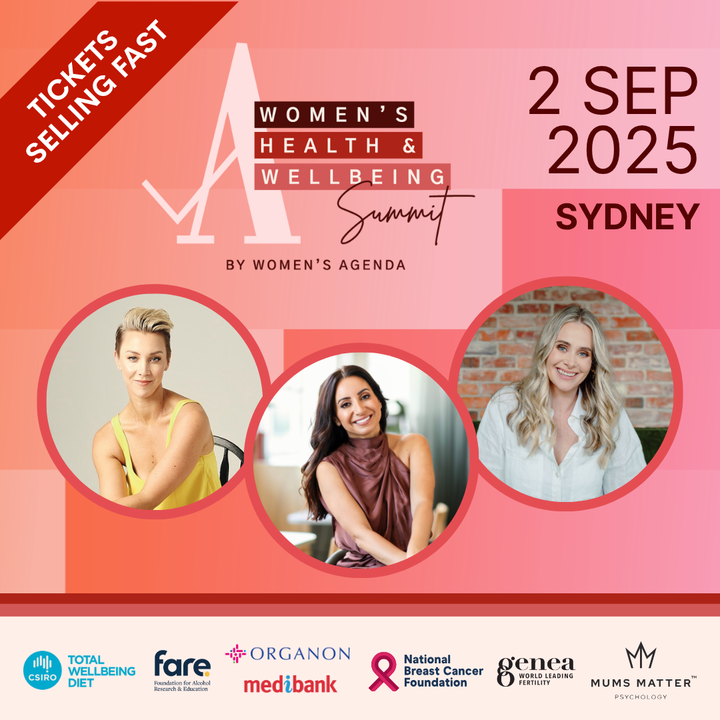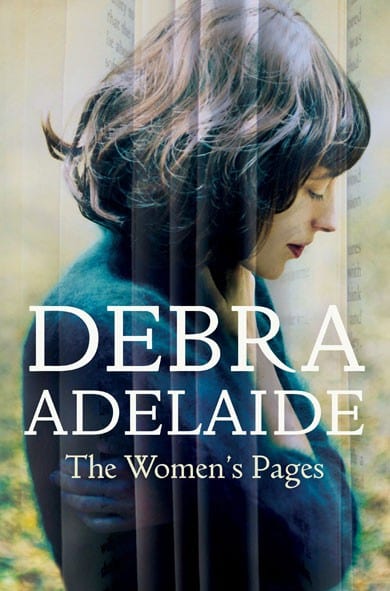
Debra Adelaide is the author or editor of over twelve books, including the best-selling Motherlove series (1996-98) and Acts of Dog (2003). Her novels include The Hotel Albatross(1995), Serpent Dust (1998) and the best-selling The Household Guide to Dying (2008), which was sold around the world.
In 2013 she published her first collection of short stories, Letter to George Clooney, which was long- and short-listed for three literary awards.
Her most recent book is the edited collection, The Simple Act of Reading (2015). She is an associate professor in creative writing at the University of Technology, Sydney.
Growing up, what kind of career did you want to pursue?
I had no idea I could have something called a career: I wasn’t brought up to think about the future, and when I did – when I was a teenager – it was suggested to me that I’d probably leave school early and work in a shop, or become a hairdresser, or work as a cooking demonstrator…
Who inspires you?
Aside from wonderful writers and their books, I am always inspired by the extraordinary people who have overcome terrible experiences to live their lives not only without rancour, but with generosity and love. Asylum seekers and refugees, for instance, who come to this country and have suffered in ways I can barely imagine, but who remain open, warm and grateful. Indigenous Australians who share their culture and learning when so much has been taken from them. I admire such dignity and grace enormously.
Who is most surprised by your achievements?
I am. Being a writer was perhaps the last thing I imagined I would be.
How have women helped shape your success to date?
I was profoundly influenced by women teachers, and in particular Lynne Spender my high school English teacher, who first suggested I would be going to university (when I barely knew what a university was) to study English literature. Later Lynne introduced me to her sister Dale Spender, who started me off researching and writing about Australian women writers, and from that my career as an author unfolded. I owe them everything.
What qualities do you most admire in a female colleague?
A sense of humour. Calmness. Reliability. A strong perspective on the whole work-life balance… I suppose qualities I hope I myself have.
What’s the key to successfully balancing work and life?
I don’t know that there is any key, or magic answer for this. My take on this is to keep in mind the fact that nothing work throws at me can touch the dramas of home and family life: so I am able to remain quite detached at work if things become difficult. However the real answer lies in employers and their treatment of employees: more workplaces need to be flexible and supportive. And it is a total disgrace that parents have to fight to have affordable childcare: that should be taken for granted in a country such as ours where working women with children give so much to the economy.
If you had an afternoon to yourself, how would you spend it?
Reading? This is a boring answer but I love nothing better!
Who do you regard as your mentor?
I don’t really have a mentor but there are inspiring women whose advice I’ve sought. Years ago Professor Elizabeth Webby supervised my doctorate and I always listened to her advice, even if I didn’t follow it. Dr Rosie Scott is another whose wisdom I regard highly.
What personal attributes have you used to overcome adversity in your life?
When I have been battling under pressure and emotional turmoil I have always continued working because it keeps me sane, and I read because it takes me out of myself. Those aren’t personal attributes, I know, but it’s the best answer I have.
If you could make one change to women’s lives, what would it be and why?
At one stage from my local state member Linda Burney, through to the then premier Kristina Keneally and prime minister Julia Gillard and to the governor general Quentin Bryce, women were in charge (and they were not wrecking the joint!). I felt immensely proud of that, because when I was young you barely saw a woman in authority. And yet we are still arguing for the very basics for women: freedom from domestic violence, fair representation at all levels of business and government, affordable childcare – the list goes on. So I don’t know that I have one change that would make a difference. Though when I had young children I always thought that having a third arm would have been a great asset!
What is the hardest part of your job?
In my job as a university teacher the hardest part is the ever-increasing administrative and governance work which is mind-numbing and depressing, and steals a dreadful amount time from the real work of teaching, which is a joy. As a writer I find the hardest part is when you have something ready for publication and pre-natal nerves spiral you into such doubt and anxiety you believe it is the stupidest thing you have ever done, but now you can’t undo it. (Yes, a first world problem …)
What advice would you give to someone aspiring to success in your field?
A writer is someone who writes, not someone who aspires to being published, and that means sticking at writing, in solitude, often with no feedback, or visible success, sticking at it until it works. And even then when it fails (and it will) remember that failure is a vital part of the process. Five or twenty drafts of a story are all failed stories, but necessary ones that finally produce the one that works. If that sounds tough then remember Henry Lawson’s infamous advice to young writers: study anatomy, with a particular emphasis on the cranium, and then take a pistol and with the aid of a looking glass, shoot themselves in the head!
Debra Adelaide’s most recent book, The Women’s Pages is out now



